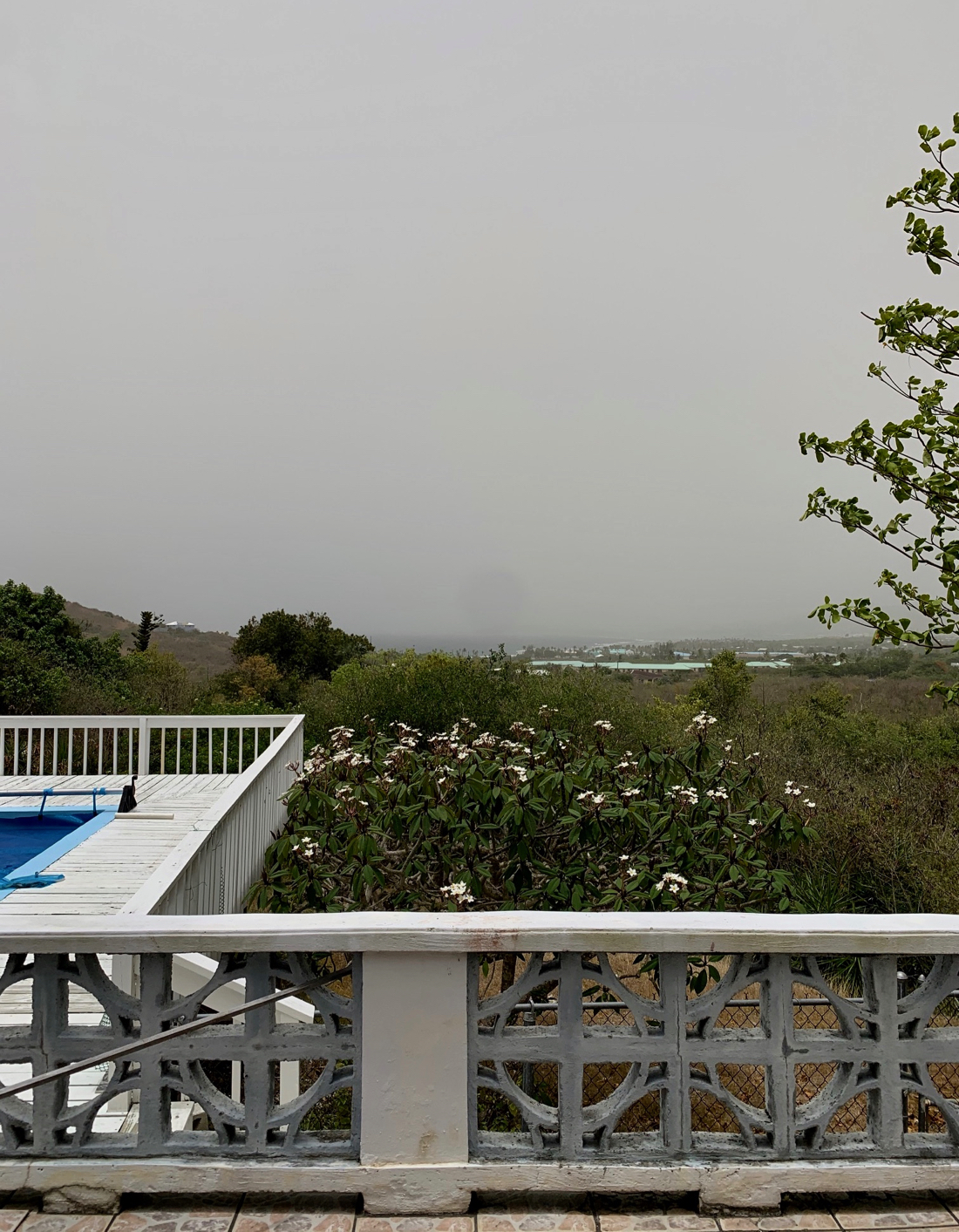Sneezing? Wheezing? Itchy eyes? Short of breath?
It could be a lot of things.
One you may not think of immediately is Saharan dust, but according to health experts, it is definitely one of the suspects. And researchers are studying links to the dust for other, potentially more serious health issues.

As Virgin Islands residents know all too well, plumes, and sometimes blankets, of Saharan dust cloud the skies periodically during the late spring and summer months.
Winds have been distributing African dust across much of the world, including what are now the Americas and the Caribbean region, for millions of years. It’s part of the ecosystem, bringing nutrients along with it.
But in the past 40 or 50 years, the episodes have seemed to increase in frequency and in intensity. And environmentalists and health experts have warned that the dust now contains debris from man-made substances like pesticides that can be harmful to plant and animal life.
“The health effects of Saharan dust depend on several factors, including the composition of the dust, the concentration and duration of exposure, and an individual’s susceptibility to respiratory or cardiovascular issues,” Wanson Harris, director of Environment Health at the V.I. Health Department, responded to an inquiry from the Source.
He went on to list several of the possible health effects:
- Respiratory issues caused by inhaling the dust can cause coughing, wheezing, and shortness of breath and can worsen asthma symptoms. This is because the dust particles can irritate the lungs and airways, leading to inflammation and difficulty breathing.
- Eye irritation: Saharan dust can also cause eye irritation and conjunctivitis due to its abrasive and irritating nature, especially when dust particles settle on a roof and then enter into the cistern. This can lead to redness, itching, and watering of the eyes.
- Cardiovascular issues: There is some evidence that exposure to Saharan dust may increase the risk of cardiovascular disease and stroke. This is because the dust particles can enter the bloodstream and cause inflammation, leading to damage to the heart and blood vessels.
- Allergic reactions: Some individuals may be allergic to certain components of the Saharan dust, leading to allergic reactions such as hives, rashes, and itching.
- Increased susceptibility to infections: Exposure to Saharan dust may weaken the immune system, making individuals more susceptible to respiratory infections such as colds, flu, and pneumonia.
An article posted on the website of the World Meteorological Organization suggests even more dire possibilities for dust in general, not necessarily Saharan dust.
While larger particles of various kinds of dust can potentially be associated with asthma, pneumonia, and other respiratory problems, “finer particles may penetrate the lower respiratory tract and enter the bloodstream, where they can affect all internal organs and be responsible for cardiovascular disorders,” the post reads. It also says, “Some infectious diseases can be transmitted by dust,” and that “iron oxides embedded in dust particles may enhance the risk of infection.”
A recent study conducted in Miami linked dust events there to an increase in episodes of COPD (Chronic Obstructive Pulmonary Disease).
A study reported by SciELO Analytics in 2006 found that Saharan dust in the Caribbean contained hundreds of microorganisms, a multitude of minerals, including iron, at least nine types of pesticides, and numerous persistent organic pollutants.
The study was conducted by an international team of scientists from government agencies and universities in the United States, the U.S. Virgin Islands, Trinidad and Tobago, Cape Verde, and Mali, West Africa. They studied air samples from all the regions, some during dust episodes and some when the air was clear.
“Of the culturable bacteria identified thus far from (dust-laden air) in source regions, 10 percent are known animal pathogens, 5 percent are plant pathogens, and 27 percent are opportunistic human pathogens,” the 2006 report states.
As might be expected, air samples from Mali contained “orders of magnitude” more microorganisms than those from the downwind areas of the V.I. and Trinidad and Tobago, suggesting that the microorganisms disperse over time as the dust travels.
However, there are still enough microorganisms present when the dust reaches the Caribbean, to be concerning. The samples taken in the Virgin Islands during dust events contained three to four times the number of microorganisms in samples taken when the air was clear.
There are a lot of factors in play in determining the effects of Saharan dust.
“The quantity of soil eroded, lifted into the atmosphere and transported long distances varies with global climate, tropical sea surface temperatures, regional meteorology, surface composition, and land use in the dust source region,” the 2006 study states.
At the same time, “it’s important to note that the health effects of Saharan dust can vary depending on the individual’s health status, age, and other factors,” Harris said.
“If individuals are experiencing any symptoms or concerns related to Saharan dust exposure, it’s recommended for them to seek medical attention,” he added.





